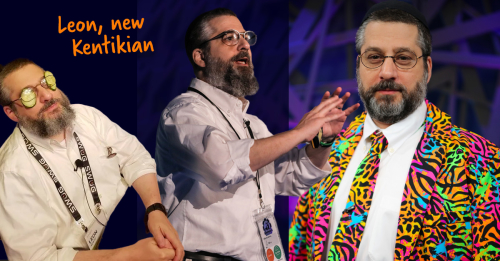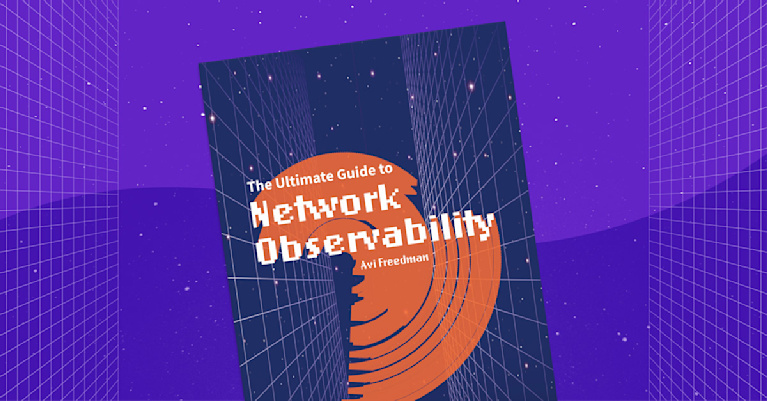
Summary
If there’s anything I’ve learned, monitoring data is the lifeblood of the business and a superpower for any IT practitioner. Monitoring allows organizations to react to changes, identify and recover, and understand the true health of the business.
What’s the opposite of “Hello, I Must Be Going”?
I ask because, here at Kentik, one of the requirements for a blog is to have a solid music reference. Or several. I inferred this from a review of existing blog content. OK, actually, just this blog.
It’s important that I get this right because – as both the location and the very existence of this blog imply – I’m able to call Kentik my home now, at least professionally, and I don’t want to do anything that might get things off on the wrong foot. Honestly, I cannot believe it’s true. And while I know you can’t hurry love, I already feel like I’m hanging with old friends.
I won’t belabor the point (or the song references). Still, I did want to highlight some of the things I’m excited about now that I’ve officially become a “Kentikian” (yeah, that’s what we call ourselves around here, but it don’t matter to me).
Observability is for everyone
Monitoring – both network-specific and the broader category of solutions that include APM, synthetics, traces, and even capital-O Observability (whether you spell it out or write it “o11y” like the super cool DevOps folks) – isn’t just a niche skill practiced by a few key people in an org.
If there’s anything I’ve learned over the quarter-century of installing, managing, and extending monitoring solutions, it’s that the data it contains is the lifeblood of the business and a superpower for any IT practitioner motivated enough to leverage it. Monitoring and the insights it provides via alerts, reports, and dashboards allow organizations to react to changes more quickly, identify and recover from issues more reliably, and understand the true health and performance of the business and the systems on which that business is built.
If there’s one thing I’m excited to share now that I’m here at Kentik, it’s the experiences, lessons, and insights I’ve gleaned from using dozens of tools over thousands of hours at companies that ranged from modest (25-100 systems), to moderate (1-5000 systems), to mind-boggling (250,000 systems).
Content by IT folks, for IT folks
Whether it’s a blog highlighting the ways network monitoring has (and hasn’t) changed or an analysis of what it looks like when an entire island cuts over from satellite internet to (undersea) fiber, Kentik places a high value in talking to IT folks the way we speak to each other.
Of course, that starts with clear, concise, and detailed explanations of the latest technology or technique and how to leverage it within Kentik’s platform.
But it also includes frank explanations when something doesn’t stack up. Even more importantly, Kentik isn’t afraid to share honest looks at what we need to do as tech practitioners to show up and do our best work every day for the businesses that depend on us.
It also means having fun sometimes. Because if the work were a never-ending joyless struggle, most of us would have built our careers as hamster ranchers, deep sea carpentry engineers, or competitive maraschino cherry jugglers.
With all due respect to Sesame Street, “c” is for community
A user community has to be more than a support forum. It has to not only allow but encourage conversations and connections between members irrespective of their company affiliations or the problems they’re encountering at the moment. A community should uplift, inform, inspire, comfort, and celebrate.
I’ll be honest (and one of the reasons I’m thrilled to be at Kentik is because this kind of honesty is not only permitted but valued), our community isn’t there – YET. And my saying that we need it is far more than aspirational. It’s happening. Stay tuned to this channel for more information as it becomes available.
But community can be found in many places and in many ways. Community also happens in the comment section of blogs and videos, in the shared stories of the hallway track at conferences and user groups, and in the whispered interjections and hastily scribbled notes during keynotes.
Kentik – and incredibly, I’m now included in that amazing collection of folks – is committed to building a vibrant, passionate, engaging, participatory community, and I hope you will stick around to be part of it because it’s going to be something special.
The (mostly) unnecessary summary
I still haven’t figured out the opposite of “Hello, I Must Be Going,” but perhaps I don’t need to. In 1930, 21 years before Mr. Collins graced us with his presence, let alone his musical genius, Groucho Marx sang the song in the classic movie “Animal Crackers.” The lyrics make it clear that leaving doesn’t mean not staying:
“I’ll stay a week or two
I’ll stay the summer through
But I am telling you:
I must be going”
Like Groucho, no matter how many times I sign off, I don’t plan to really go anywhere. I plan to be extremely visible here at Kentik, whether on the blog, in the video channel, at conferences, or in community spaces.
I hope to see you there, too!
*For those who skipped comparative linguistics in school, “Kentik” is Yiddish for “visible.”



